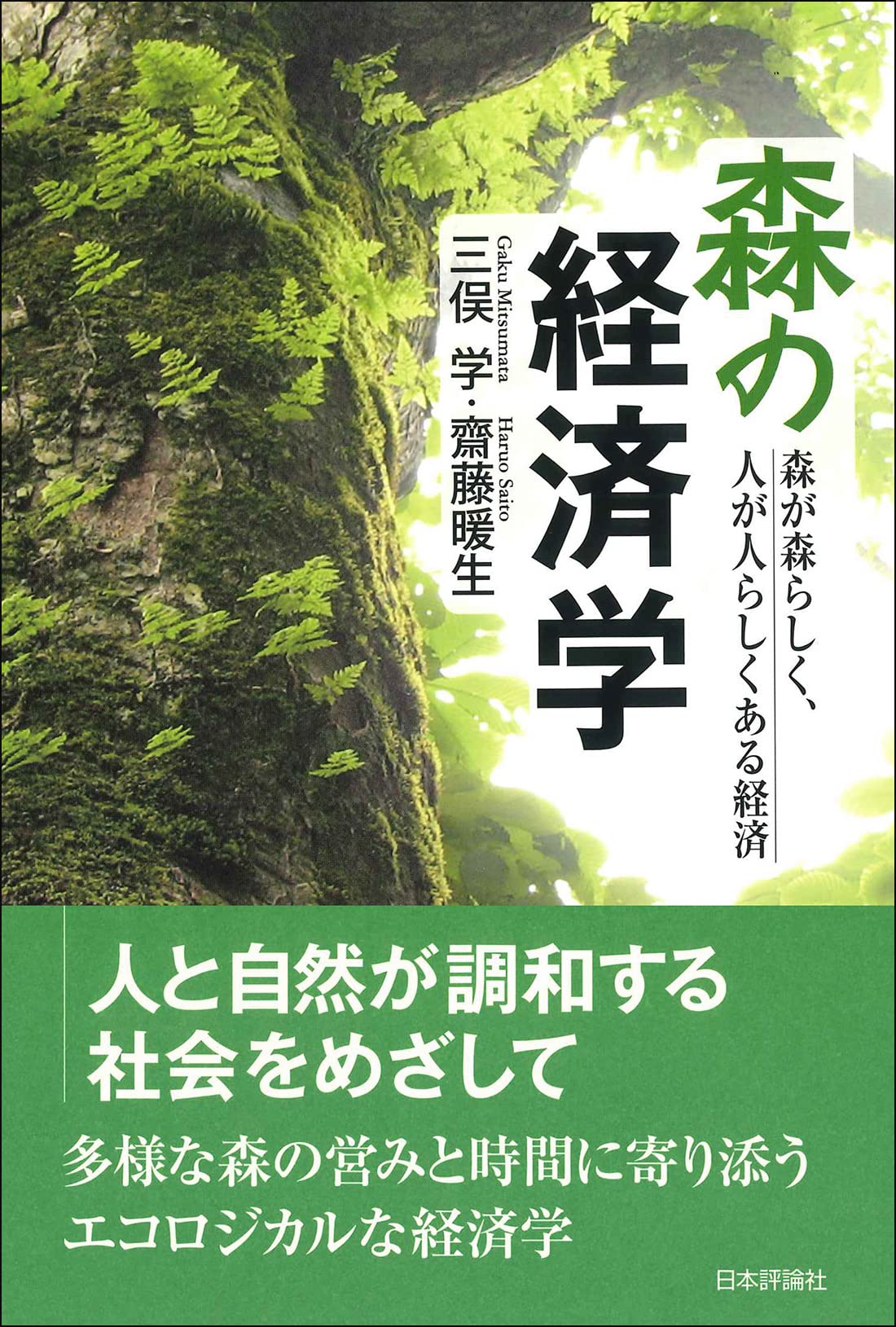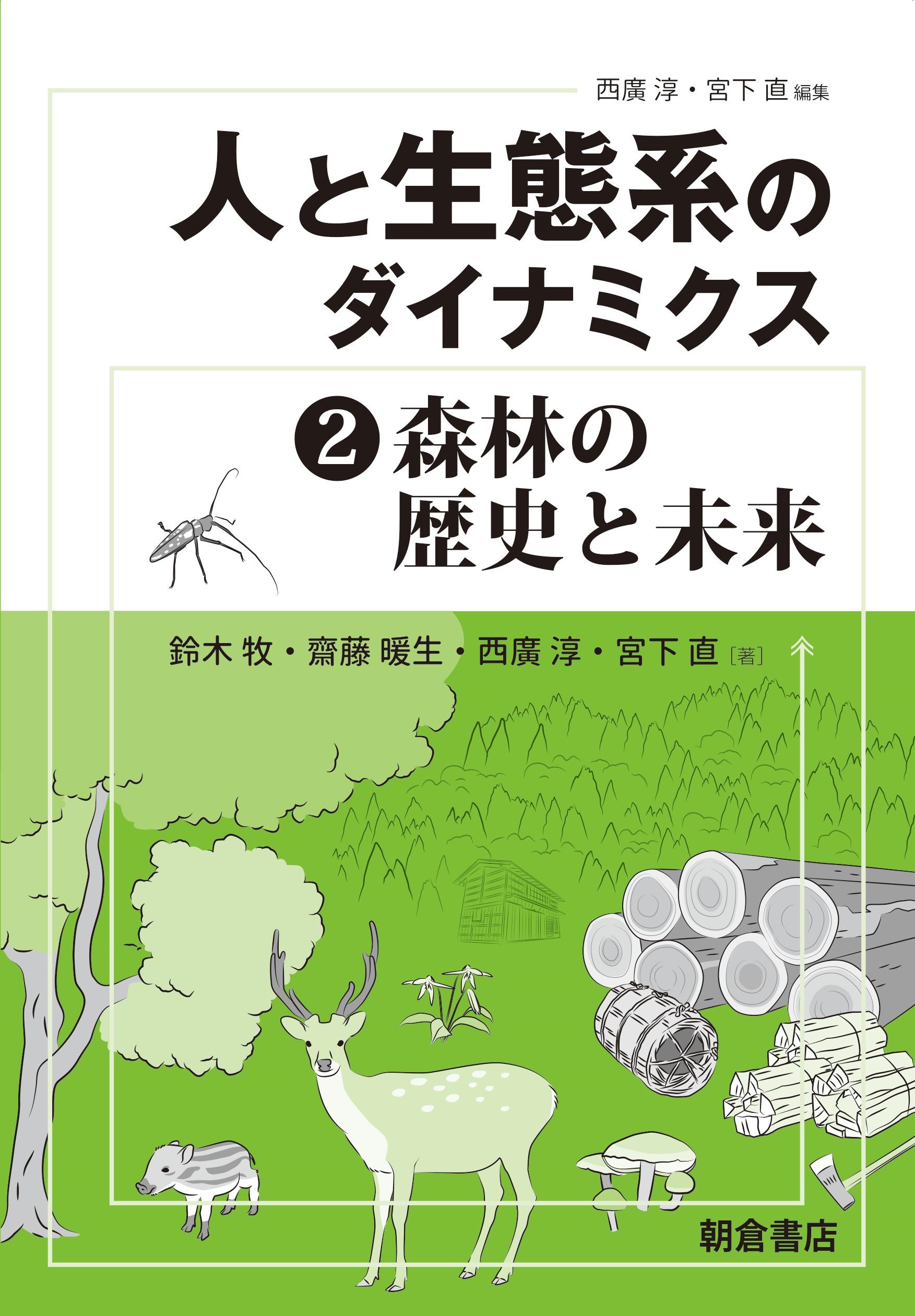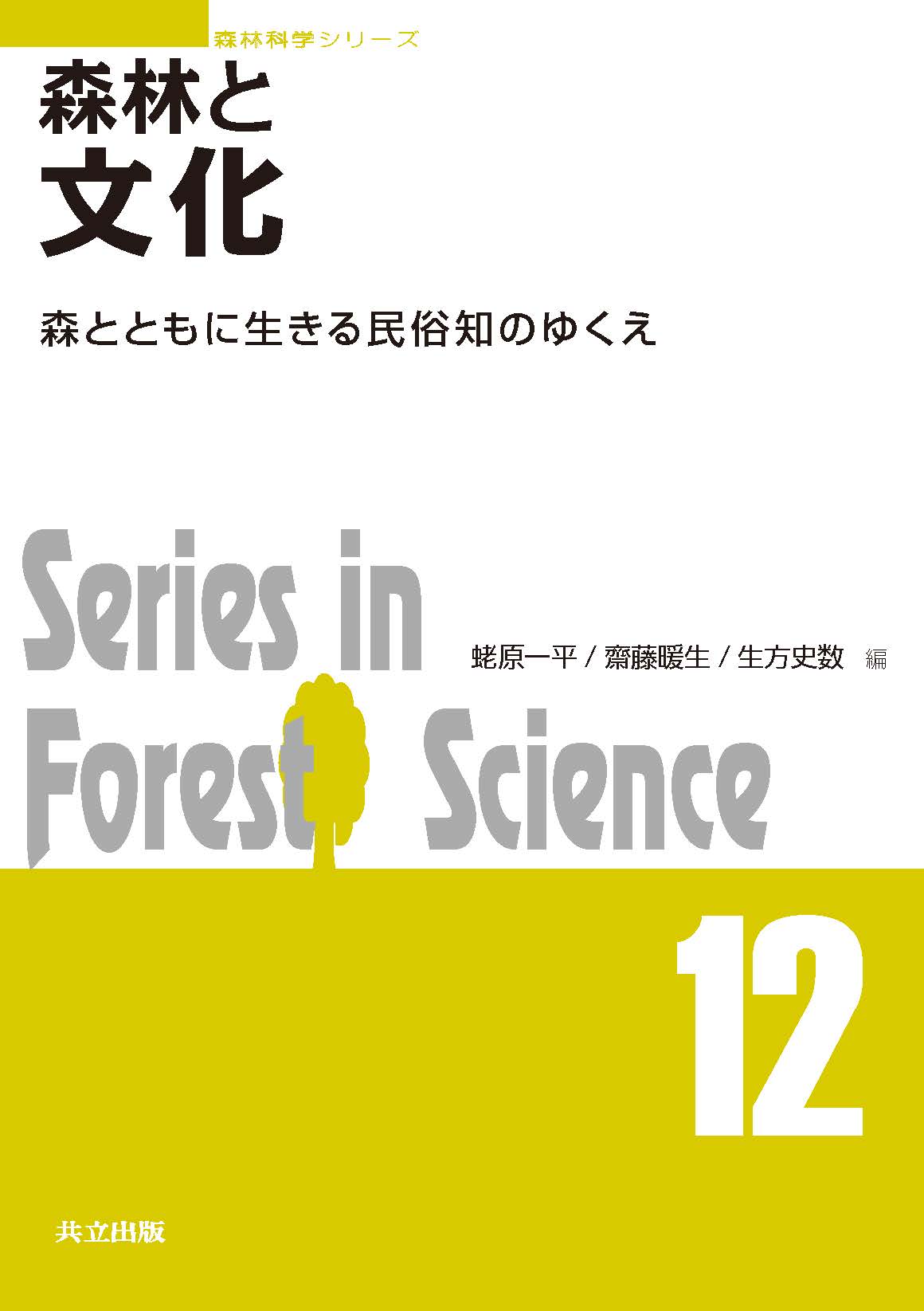
Title
Mori no Keizai-gaku (Forests and Human - Economy based on ecological cycle and human dignity)
Size
272 pages, 127x188mm
Language
Japanese
Released
July, 2022
ISBN
978-4-535-55993-6
Published by
Nippon Hyoron sha co., Ltd.
Book Info
See Book Availability at Library
Japanese Page
The current volume is written for those who have not specifically learned about forests in order to provide a reader-friendly explanation of the relationship between forests and the human activities (economy). As the subtitle shows, this book focuses on economic aspects, however, it does not in fact touch much upon practical measures for utilizing forest resources economically, but rather aims to provide perspectives necessary to understand the nature of forests and how the economy works by going back to the most basic point, to review “the now” of the relationship between forests and human society and to create “the future” with lateral thinking. To this end, authors have tried to include some perspectives not discussed in conventional textbooks on forestry or economics. Though this book is written for beginners, I believe it can provide a new perspective to those who are familiar with forestry and economics to a certain extent.
Let me briefly introduce the basic principle of the volume.
To start with, the forest is an existence that is continuous both spatially and temporarily. No matter how hard a forest owner might try, he/she cannot monopolize the benefits the forest gives, such as clean air and water. Even if a forest disappears through natural disaster or logging, the land will eventually become another forest via grassland, and the forest to come could greatly change as time passes.
Second, we need to pay attention to the fact that, when a forest is understood as a set of resources for human beings, discrepancies in the time scale between economic activity of human and reproduction of forest resources often emerge. In particular, what is valuable in contemporary society changes at a lightning speed. It is not too difficult to imagine that, given trees’ growth speed, not only can they not respond to such sudden demand, but also that their reproduction would be threatened.
Human beings have used various creatures that make up forests as resources throughout their long history. They sometimes resisted them as a threat. These are the economy of human society that cope with the forest. In this manner, we can now understand economic activities around forests from the viewpoint of direct interaction between forests and human beings as well as human relationships that have been formed with forests in the background.
In economics, the natural environment of creatures is in many cases not seen as falling within the category of economy of human beings. However, as pointed out above, without also taking into account ecological cycle of forest, the sustainability of economy and society would contain sources of fragility. In modern society, the emphasis has been placed on the maximization of values that are transacted in the market, and efforts have been made to transform forests to serve this purpose. The reality that has emerged in “the now” of Japanese society as a result is a mismatch between resources that have been enhanced over several decades and resources that are in demand as well as the forests whose contacts with human society have become very thin despite being located very close to society.
The current volume sees the modernity of economic activities around forests is a history of simplification for the sake of profit maximization. I believe that breaking free from the curse of profit maximization and forming diverse relationship between forests and human beings is the most important foundation to approach “Economy based on ecological cycle and human dignity.” What do you, the reader, think?
(Written by SAITO Haruo, Lecturer, Graduate School of Agricultural and Life Sciences / 2022)



 Find a book
Find a book






